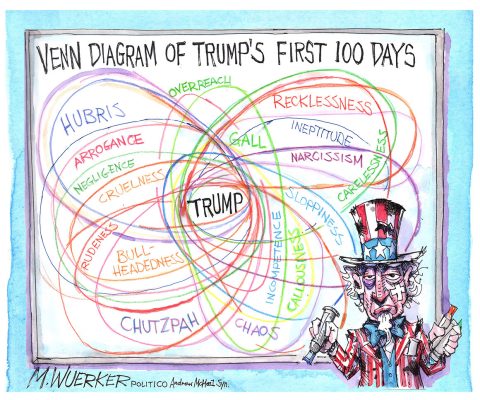In the vast world of academic research, every paper is a brick that can build change and innovation. But for the paper to make an impact, it must be clear, factually accurate, and perfectly formatted. For the average researcher, it can often be too much to handle.
That’s where professional editing services come into play. The professional editors not only tweak your writing but they also transform it. The goal is to make sure your research can make the impact you intended for it. And of course, you want it published, right? That’s like every researcher’s baseline dream.
In this post, let’s go over the top 5 benefits of hiring expert editing services for your academic research career.
Academic Standards Before Anything Else
One of the biggest differences between formal and informal writing is the standards. Informal writing isn’t subject to as much scrutiny as academic writing. As academic papers are supposed to create a trail of credible information about practically everything, standards are critical.
Let’s talk about them. They’re not just bureaucratic red tape. Rather, they’re the scaffolding that supports the integrity and credibility of your research.
When you put it that way, professional editors are the unsung heroes who align your work with these rigorous standards. For example, if you search APA editors for hire on Google, you’ll find reliable options to adhere to the specific standards of the American Psychological Association!
Of course, this alignment with academic standards is more than just cosmetic. It’s about creating a seamless reader experience that allows the academic community to replicate studies, build upon findings, and advance the field.
Clarity and Coherence Follow Close
Every academic research has a narrative. It’s supposed to have one. Every study tells a story that not only includes the what but also the how and the why. As a researcher, you may have all the facts right but it’s very hard to connect all the dots, in the right order.
Again, professional editors come to the rescue. They are the narrators who help you craft your story. They have an eye for the narrative arc of your paper, ensuring that each section naturally leads to the next, making your research not just understandable, but engaging.
Clarity and coherence in academic writing mean that your findings are presented in a way that the audience is familiar with.
A professionally edited paper doesn’t just impart knowledge but invites the reader into a dialogue. This method of sparking curiosity and debate is what leads to newer innovations across different sectors.
Improving Language and Grammar
Although you might be focusing more on the facts and formatting, language is still the primary mode of communication. So, it needs to be impeccable in terms of grammar, linguistic accuracy, and flow.
An editor who’s well-versed in grammar and language doesn’t just fix the occasional typo or split paragraphs. Instead, they reconstruct your sentences to ensure that your ideas are presented in the best way possible.
It’s especially important for researchers who aren’t native English speakers. As the official language of the world, academic papers should ideally be in English. It’s about leveling the playing field, ensuring that every piece is judged on the strength of their research.
In these cases, an editor acts as an equalizer, giving voice to groundbreaking ideas that might otherwise be lost in translation.
Saving Time and Energy
Let’s admit it. If you don’t have professional editing experience, you’re not very good at it. Also, it takes you way longer to edit the paper. We understand how time-consuming and draining it must feel.
Of course, there are the occasional tight deadlines. In these scenarios, every minute counts and there is no room for errors!
Now, imagine if, in that critical time, you had a partner to take some of the load off. That’s what professional editors do! They step in and take over the tiresome process of editing. It gives you time to readjust your valuable focus to the research itself. We know you’ll agree that it’s the most important aspect of a research paper.
And when we say efficiency, it’s not just about speed. Instead, it’s about rhythm and flow. A good editor works in harmony with your schedule, maintaining the momentum of your research cycle and ensuring that deadlines are met with room to spare.
This synchronization is often the difference between a paper that’s timely and one that’s sidelined by inefficient methodologies.
Improving the Rate of Publication Success
Every researcher’s journey is ultimately a pursuit of publication. It’s a testament to their hard work and a beacon for future citation. But as all know, this path is littered with the hurdles of peer review, the high standards of academic journals, and the fierce competition for space on their pages.
To get you out of that ditch, professional editors can help. They bring to the table an understanding of what journal reviewers are looking for. They help refine your arguments to be more persuasive, ensure your data is presented compellingly, and even assist in interpreting reviewer comments for revisions.
The bottom line here is that you need a draft manuscript that an editor can edit to fit the title page, abstract, body, and references into the standardized format. When you do it, you reduce the chances of getting rejected. And you don’t have to be a rocket scientist to know why that’s important if you’re looking into faster publications.
Conclusion
In our discussion, it’s apparent that professional editing of an academic paper is not supposed to be just a final polish. Rather, it should be an integral part of the research process. It’s about presenting your work in its best light so it’s judged on its merit. Of course, that’s the only way to give it the best chance to make an impact.
Whether it’s maintaining the integrity of academic standards, clarifying your narrative, perfecting the language, saving precious time, or smoothing the way to publication, professional editors are key allies in the quest to advance knowledge.








